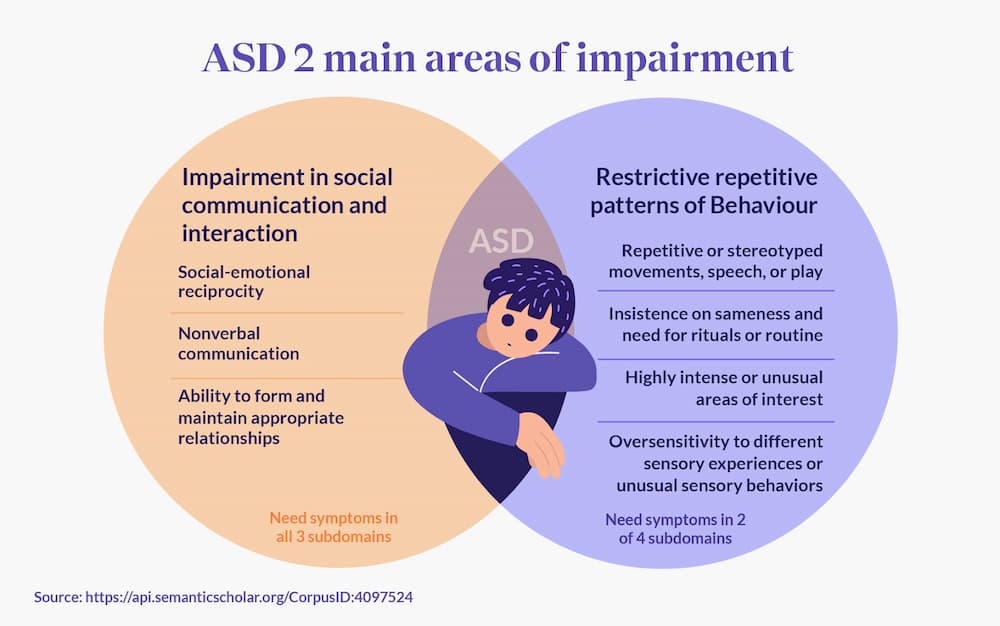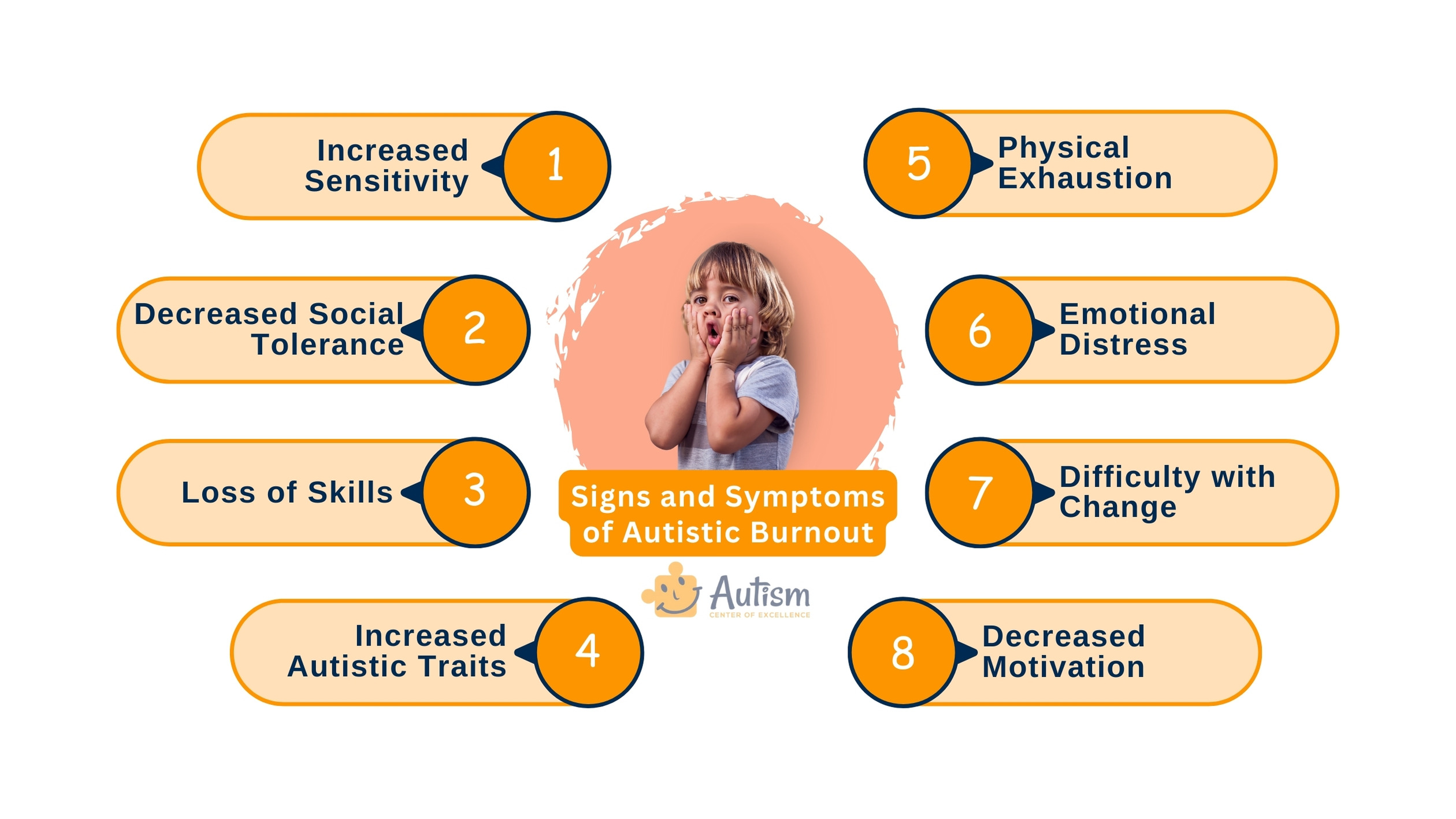Navigating emotional regulation through Autism Therapist-backed methods
Navigating emotional regulation through Autism Therapist-backed methods
Blog Article
Secret Indications and Signs to Acknowledge in Individuals With Behavioral Autism
When you come across somebody with behavioral autism, acknowledging essential symptoms and signs is vital. You may observe difficulties in social interactions and communication, as well as a strong need for routines. In addition, sensory level of sensitivities can bring about overwhelming experiences. Comprehending these qualities can improve your support and interventions, yet there's even more to discover about how these actions materialize in day-to-day situations. Allow's explore what these indicators actually appear like.
Obstacles in Social Interactions
When you engage with someone on the autism range, you might observe they struggle with social hints and interaction. These challenges can make social communications feel overwhelming for them.
In addition, you may locate that they prefer regimens and acquainted settings, which can restrict their willingness to engage in brand-new social situations. When they do engage, they could discuss their passions in fantastic information without seeing if you're interested. This can bring about discriminatory discussions that leave you feeling disconnected. Recognizing these challenges can help you approach communications with compassion and patience, fostering a much more comfortable setting for both of you.
Problem With Verbal and Non-Verbal Interaction

Acknowledging these indicators is important, as it aids you better support and involve with people on the autism spectrum. By understanding their interaction obstacles, you can foster a lot more purposeful connections and offer an extra encouraging environment.
Repeated Habits and Regimens
Interaction challenges frequently go along with various other indicators of autism, such as repetitive behaviors and a strong preference for routines. You may notice that individuals with autism commonly take part in certain, repetitive activities, like hand-flapping, shaking, or duplicating expressions. These actions can provide comfort and a sense of control in a typically frustrating globe.
When they follow a structured routine,Routines are similarly essential; numerous individuals flourish. You may find that changes to these regimens can bring about substantial distress. If they have a day-to-day routine of eating breakfast at a details time or adhering to a specific path to school, any kind of interruption can trigger anxiety.
Recognizing these patterns aids you comprehend their behavior and give assistance. By accommodating their need for regular and allowing repetitive activities, you can create an extra comfortable environment that reduces their difficulties.
Sensory Sensitivities

Common Sensory Triggers
Sensory sensitivities can significantly affect everyday life for individuals with autism, as certain stimulations often trigger frustrating responses. Usual sensory triggers consist of loud sounds, brilliant lights, and strong smells. Understanding these triggers can help you handle your setting much better.
Behavioral Reactions Discussed
Comprehending your behavior reactions to sensory level of sensitivities is vital, as they often expose how you engage with the globe. You may additionally find yourself looking for particular sensory experiences, like deep stress or quiet settings, to assist ground on your own. Acknowledging these patterns aids you understand your demands much better and can assist how you connect them to others.
Coping Approaches Introduction
Recognizing your sensory level of sensitivities is simply the first step; currently it's time to discover coping approaches that can aid you handle those experiences properly. Start by developing a sensory toolkit tailored to your requirements. Developing an organized routine can additionally provide predictability, decreasing stress and anxiety around sensory overload.
Restricted Rate Of Interests and Focus
While several individuals develop a large variety of rate of interests, those with autism frequently show limited rate of interests and an extreme concentrate on details subjects. You might discover that someone with autism can invest hours delving into their favorite topic, whether it's a particular sort of train, a certain motion picture, or a clinical principle. This intense focus isn't just a hobby; it can end up being a main part of their identification and social interactions.
You might discover that conversations revolve around these passions, and they might struggle to engage in more comprehensive subjects. By recognizing and acknowledging these restricted passions, you can foster a supportive setting where they feel valued and recognized, allowing for even more significant connections and interactions.
Emotional Policy Difficulties
Individuals with autism usually face obstacles in psychological guideline, which can be influenced by their extreme focus on specific rate of interests. You might observe that when an individual is deeply taken part in a favored task, they can experience solid emotions, whether excitement or stress. This intensity occasionally makes it hard for them to change gears or handle their sensations when points do not go as planned.

Irregularity in Developmental Turning Points
When it comes to developing milestones, you'll observe that individuals with autism frequently show a broad range of irregularity. You may see a youngster stand out in language abilities yet struggle with social communications.
It's important to recognize that each individual's journey is unique. Some might develop intricate skills early, only to deal with challenges later. Others might take longer to accomplish fundamental milestones yet then thrive in certain areas. Observing these patterns can assist you recognize their staminas and needs better.
Frequently Asked Questions
Just How Is Autism Detected in Kid and Grownups?
To diagnose autism in adults and children, specialists assess habits, interaction abilities, and social interactions. If a specific fulfills the requirements for autism range condition., they often make use of standardized examinations, interviews, and monitorings to determine.
Exist Different Kinds of Autism Spectrum Disorders?
Yes, there are different types of autism spectrum problems, including Asperger's disorder and pervasive developmental disorder-not or else specified. Each kind differs in seriousness and features, so comprehending these differences can help you much better assistance individuals with autism.
What Treatments Are Effective for Individuals With Autism?
When taking into consideration effective therapies for people with autism, you'll find choices website like Applied Actions Analysis, speech therapy, and work-related treatment. Each method can aid improve communication, social abilities, and daily working customized to individual needs.
Can People With Autism Lead Independent Lives?
Yes, people with autism can lead independent lives. With the right support, abilities training, and sources, you can aid them develop self-sufficiency, handle day-to-day tasks, and flourish in different settings, fostering their self-reliance.
Exactly How Can Family Members Assistance Loved Ones With Autism?
You can support your loved ones with autism by producing an organized environment, motivating their interests, practicing persistence, cultivating interaction, and promoting social skills. Celebrate their success, regardless of how small, and build a supportive neighborhood.
Although several people on the autism range can recognize and make use of language, they usually deal with substantial obstacles with both spoken and non-verbal communication. Acknowledging these indications is vital, as it assists you better support and involve with people on the autism spectrum. You might notice that people with autism usually involve in certain, repeated actions, like hand-flapping, shaking, or repeating phrases.Sensory sensitivities can substantially influence everyday life for individuals with autism, as certain stimulations often activate overwhelming responses.When it comes to developing turning points, you'll notice that people with autism commonly show a wide array of variability.
Report this page